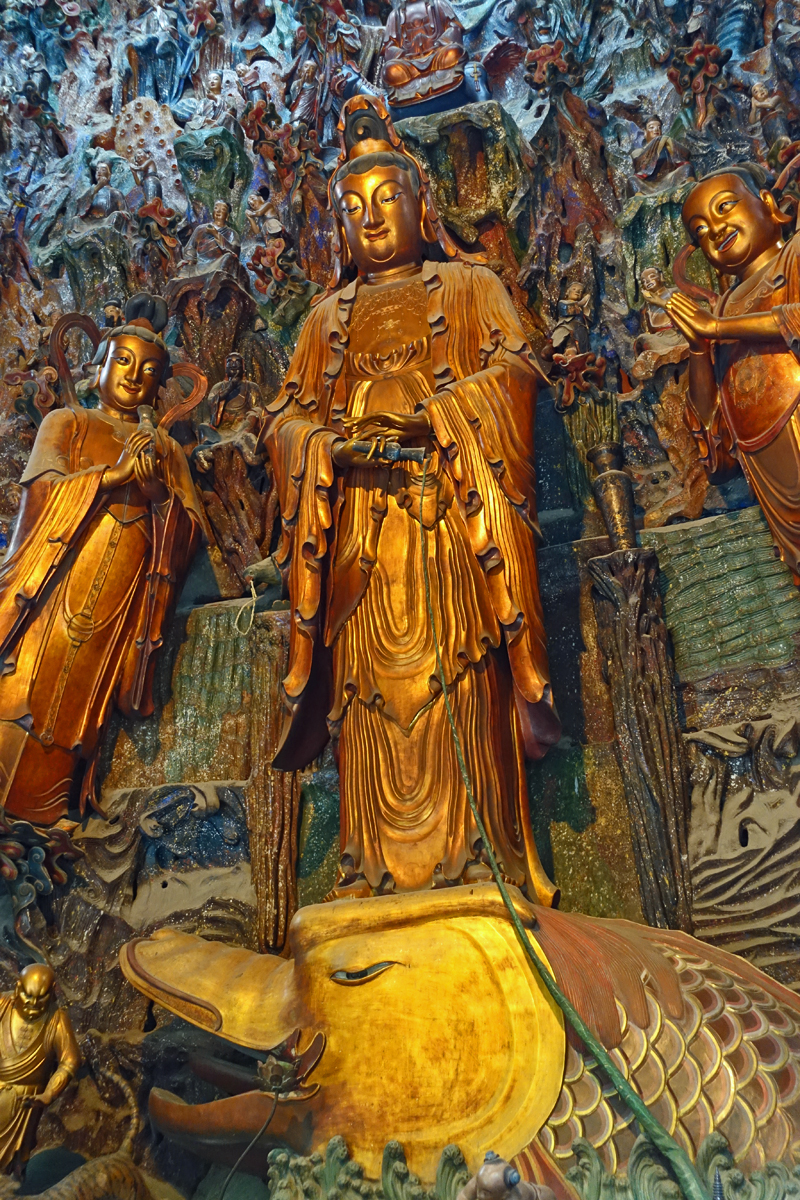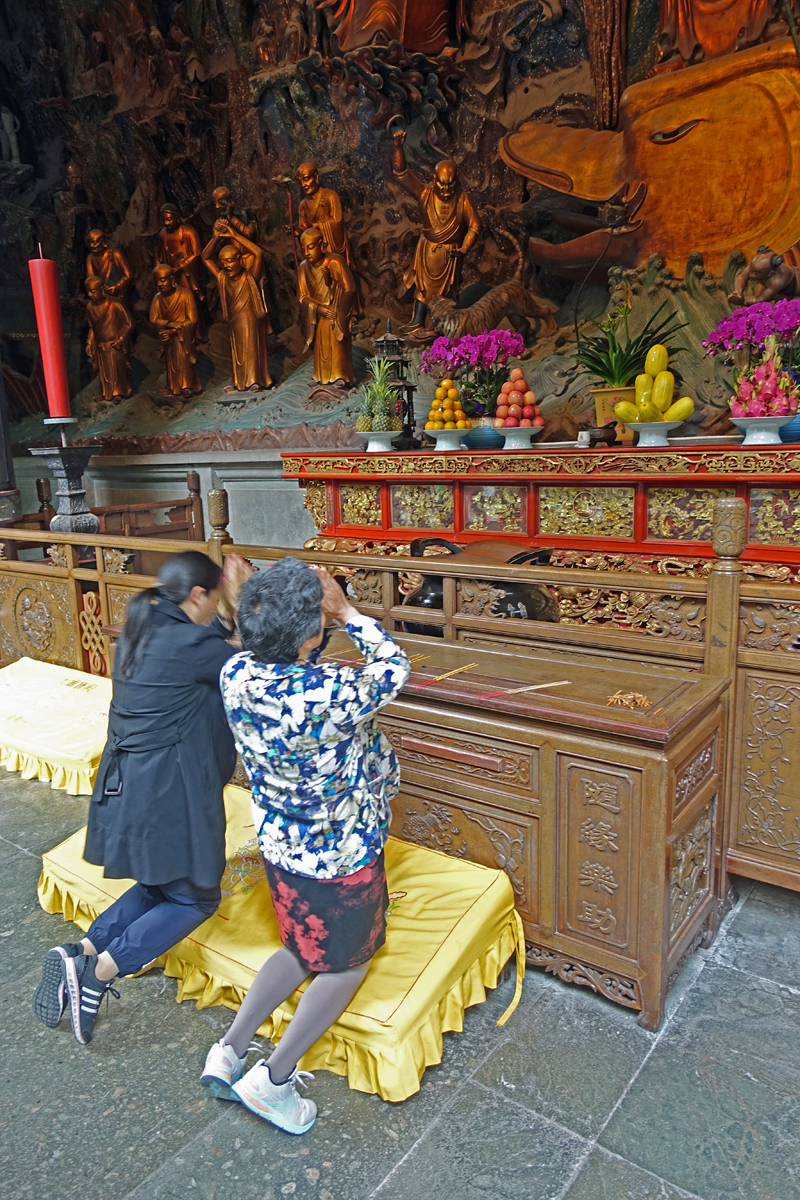Temple of the Soul's Retreat
An Indian Buddhist monk and pilgrim, named Huili in Chinese, travelled to Hangzhou in 326 AD. Huili founded Lingyin Temple, which can be translated as Temple of the Soul's Retreat or Temple of Inspired Seclusion. At that time Buddhism in China attracted a relatively small number of followers and early Lingyin Temple was pretty secluded. During the Southern and Northern Dynasties (420-589AD) Buddhism was on the rise. Xiao Yan, Emperor Wu of Liang Dynasty (504 AD), ordered that people should "abandon Taoism and return to Buddhism", but during the following dynasties Buddhism fell in and out of favour many times, and Lingyin Temple declined and prospered along with the mood of the times.
In modern times Lingyin Temple survived the Cultural Revolution (1966-1976) after former Prime Minister Zhou Enlai (1898-1976) suggested "temporary closure of Lingyin Temple" to protect the temple. While a surprising number of buildings in the temple complex are modern, the history can be traced back more than 1680 years.
The whole temple compound is large. I strolled around the various buildings in almost 5 hours.
Feilai Feng, or "the Peak that Flew Hither", is said to have inspired Huili to settle in this place. The craggy peaks reminded Huili of a mountain in India. Many statues are carved into the limestone rock over the course of many centuries.
The Hall of the Four Heavenly Kings is the former entrance to Lingyin Temple. In the photo are the eastern King Dhṛtarāṣṭra (持國天王) with the four-stringed Chinese musical instrument and the southern King Virūḍhaka (增長天王).
Below: Guanyin, a manifestation of the Bodhisattva Avalokiteśvara, with relief screen, at the back of the Grand Hall of the Great Sage.
Some, but not all, Buddhist schools advocate vegetarianism. In practice monks and nuns are expected to abstain from meat. Lingyin Temple has a vegetarian restaurant although there was some confusion on my part if I found the right restaurant, since there was also chicken on the menu. I ordered a vegetarian noodle soup, fresh bamboo shoots with preserved vegetables and a simple version of Buddha's delight without soy sauce.







